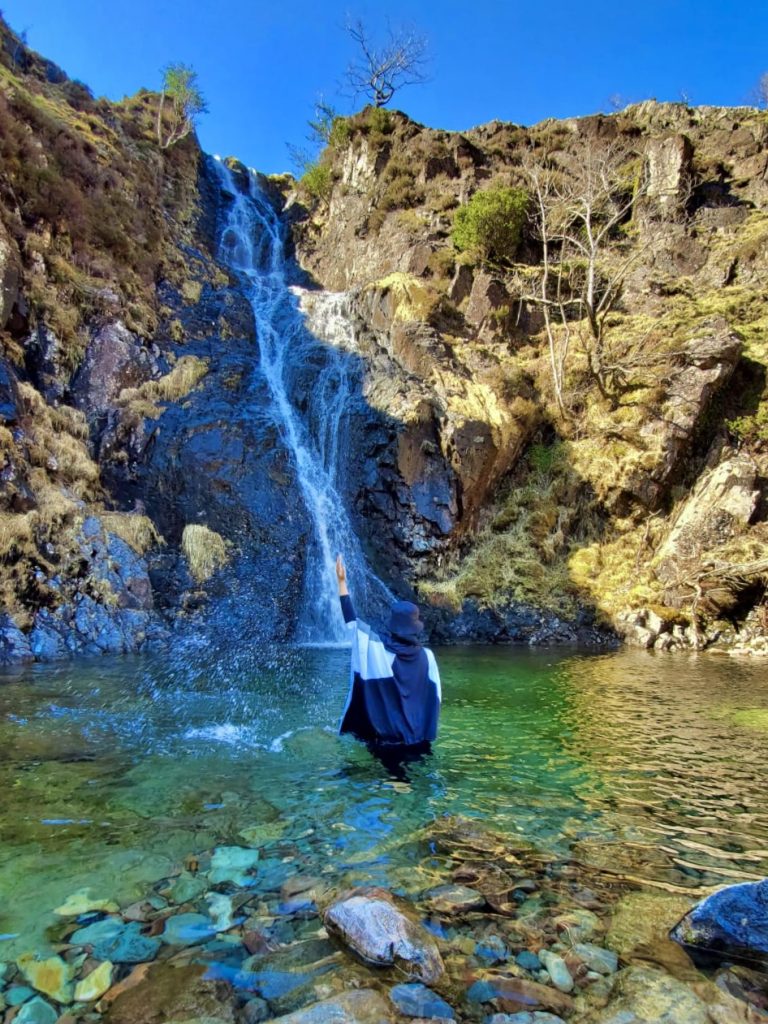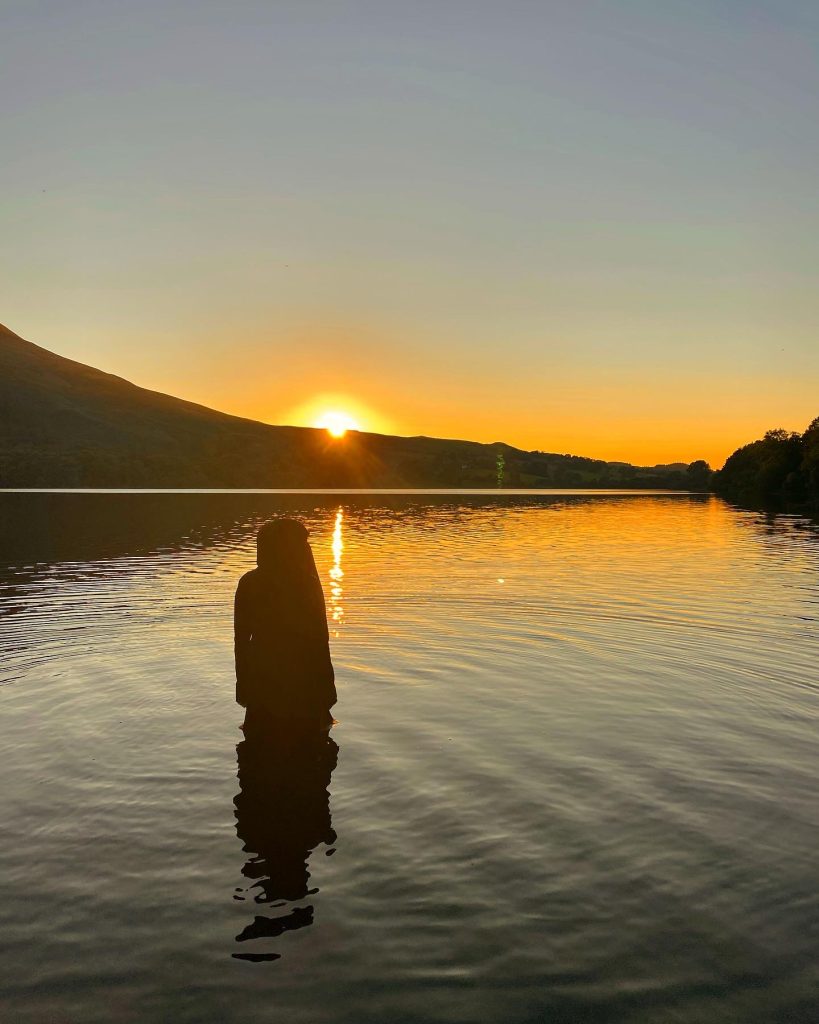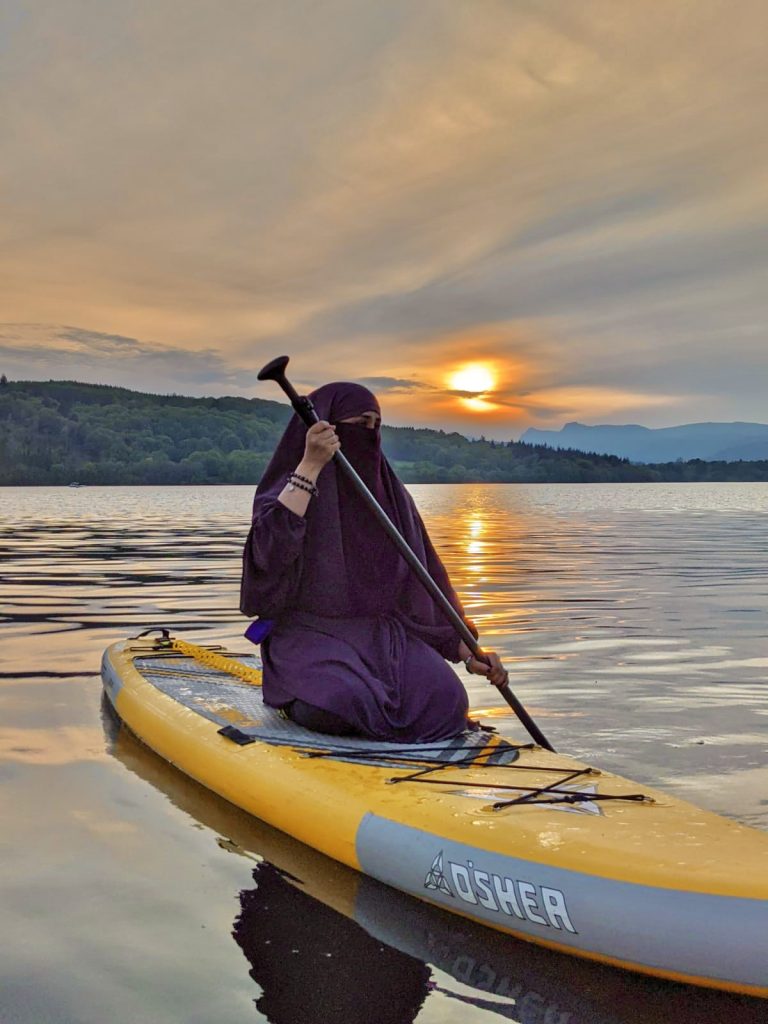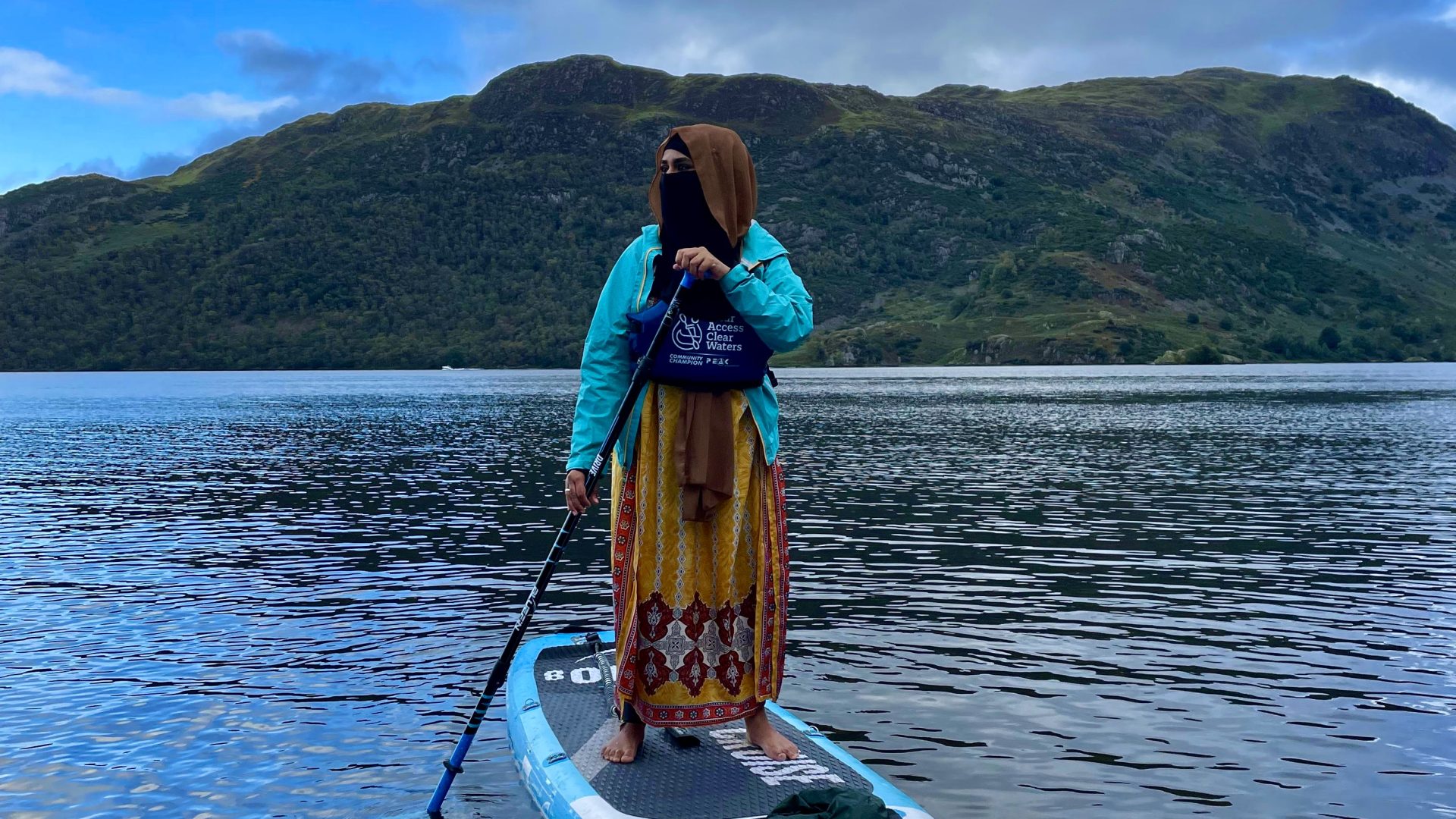
Against the Flow: Amira’s Story
A life-long swimmer, and lover of the outdoors and its ability to re-centre and revitalise us, Amira the Wanderlust has travelled the globe in her efforts to ensure the natural world is an open and inviting space to be. Since 2021, she’s made it her full time mission: setting up hiking groups, scaling mountains, getting cold and wet – all to highlight not only the way wild spaces improve our wellbeing, but also the need for everyone to feel welcome wherever they climb, walk or dip.
As a charity, we know that recognising, representing, and actively shaping a more diverse, equitable, and inclusive landscape has to sit at the heart of our aim to create Ocean Activists everywhere. We know we’ve got a lot of work to do. We talked to Amira about her love of the water, the difference she’s making, and how when it comes to the outdoors, she believes comfort zones are made to be pushed…
Why is the water important to you?
Swimming is my thing. I was lucky, as a family we travelled loads when I was little and I swam wherever we went. My mum trained as a lifeguard so other Muslim women in our community could swim, and I would swim alongside her. But I lost my confidence with swimming when I got older because I felt that in my full modest swimwear, everyone was staring. I live in the Lake District and it’s not a very diverse area. People would always look, or little kids would say, ‘Why are you wearing that dress?’. It got to me a bit. But then I thought about it, and what my mother did to create a safe space for Muslim women to swim, and I knew I needed to get back in the water.
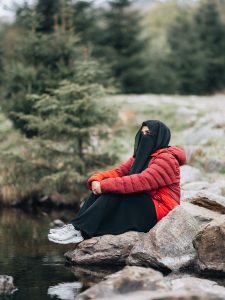
Even though it felt outside your comfort zone?
Absolutely. I’m a firm believer in pushing comfort zones. I love exploring, and travelling, and seeing what’s out there. I was really young when I went on my first backpacking trip, which isn’t really the norm for a Muslim woman to do, and I realised it was what I love.
I got so much from just going into the countryside, climbing mountains, setting myself challenges and meeting them. I gained this new connection with nature, my faith, my mental and physical health you know. But I also noticed how few people looked like me where I went and that there wasn’t a space for Muslim women to feel like they could do this sort of thing. I wanted to change the way Muslim women are seen and show that people who wear the hijab and the veil are capable of anything. I got really passionate about it. Which is when I decided to set up The Wanderlust, a hiking and adventure group for women.
How does your love of blue spaces and swimming feed into that?
With The Wanderlust, we’ve got people all over the world joining us. We’ve done loads of different things, from hiking to climbing, to surfing, to wild swimming. And the ethos of wild swimming is the same, connecting Muslim women in outdoor spaces, creating a safe place, and connecting people to their faith in a different way. Also encouraging everyone to push themselves a little, to get a bit uncomfortable. I remember my first winter swim I was like, ‘oh gosh!’, it was so cold. It was in December. I couldn’t feel my hands or anything. But it was so uplifting, I really loved it. I’ve got all the right kit and I get in all the time now.
I talk a lot about stepping outside of the comfort zone because you have to be uncomfortable to grow, to be the best version of yourself. And if you challenge yourself you’ll see how strong and capable you actually are, because you’re able to do these things. Especially being a woman of colour and a woman who wears the veil, you have to be strong because there’s still a lot of prejudice to navigate, but being out in nature with people like you empowers you so that you don’t feel judged. It’s just you, and the mountains, and the trees, and the water, and you can be still and not worry.
I wanted to change the way Muslim women are seen and show that people who wear the hijab and the veil are capable of anything.
It sounds like wild swimming provides a calming space for you?
Yes. I think human temperaments are aligned with nature. When you’re in the mountains you feel really mighty and high, you feel strong and confident. Whereas when you’re in the water you become still and calm and you go with the flow. For me, it allows me to just ‘be’. I have ADHD so being in the water allows me to breathe. It’s very spiritual – you get a sense of trust and you become mindful and connect and you know, it’s a very tranquil sort of feeling. I also love to meditate and pray about the water. Where I live the lake is right beneath the mountain and that feeling of being near and in the water and seeing the mountain, it’s truly beautiful.
What would you say to anyone who hasn’t tried wild swimming because they’ve never seen someone who looks like them doing it?
I would say it’s about taking it one step at a time. For instance, if you know you want to try it but you’ve never done it, or don’t know how to swim, forget the swimming part to begin with. Just first of all introduce yourself to the water, see how you feel stepping into it, that’s the most important thing. If you’ve not been in the water before, particularly wild swimming, you might be frightened and have different anxieties, but there are ways to overcome that. Go with someone you know, start slowly, and connect with others who are doing it so you’re in a safe space. Dip your feet in first. Build up to it. Because I honestly believe if you want to try something, you should just try it. Put your heart and mind to it and do it.
I talk a lot about stepping outside of the comfort zone because you have to be uncomfortable to grow, to be the best version of yourself.
It’s clear you think wild blue spaces really matter. So how does plastic and sewage pollution make you feel?
I’m going to answer that from a faith point of view. I believe this world has been given to us by God and we have to look after it. It’s our duty to not harm other beings and not harm the natural environment. To look after it. It’s part of my faith to look after everything God has given us. So for me, it comes from a faith aspect, first of all, to do that.
And what about the people who not only aren’t doing that, but are profiteering from the pollution, making people sick?
How do you answer a question like that? I’d say to them do you not think about the consequences? Do you think you shouldn’t have to answer for your actions? Like, in the future, when the damage is irreversible, how would you explain what you’ve done to your kids? To your kids’ kids? You did this. Deprived them of the spaces, the things, the opportunities that make us as humans thrive. It’s inexcusable.”
Thank you to Amira for sharing her thoughts with us. To follow more of her journey and to get involved, follow @amira_thewanderlust on Instagram.

